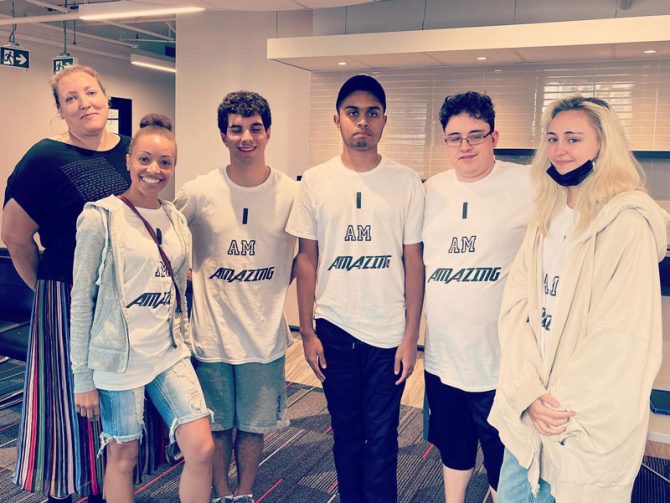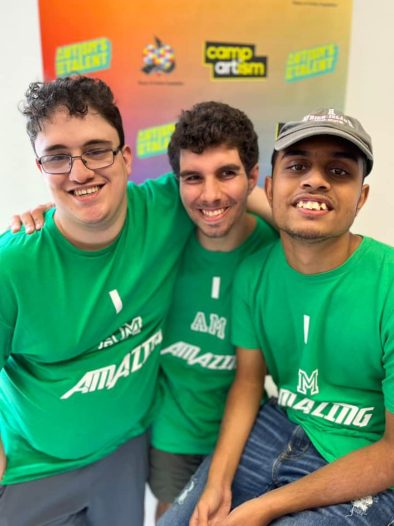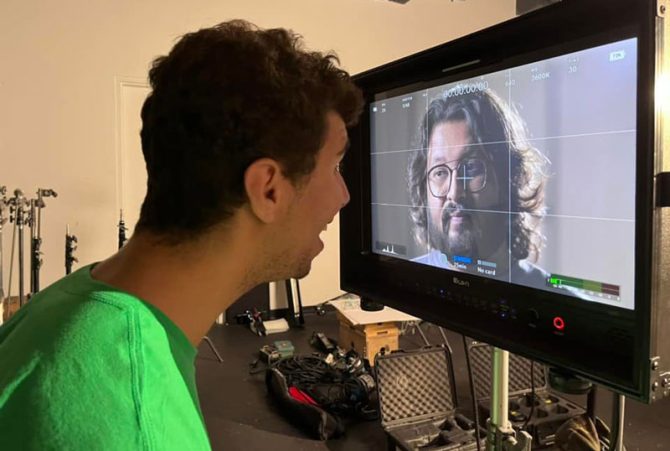Camp Artism Champions Autistic Artists With Toronto Film School

“The arts speak to so many people, whether you’re on the spectrum or not,” says Ashley Drayton. “It’s a fluidic language that so many people can relate to.”
Drayton is the President and Executive Director of House of Artists Foundation, a non-profit organization dedicated to championing artists living with autism spectrum disorder (ASD).
“My first job in high school was with Parks and Recreation in South Carolina, and there were not that many resources at that time for those who have intellectual or developmental special needs,” remembered Drayton. “I always felt a connection to those individuals. And I always said that once I got older, I wanted to do something special for them.”
In 2017, House of Artists launched Camp Artism, a multi-day, hands-on program centred around performing arts, where autistic artists explore a variety of creative career options in the film and TV industry.
After starting in Atlanta, Georgia, Camp Artism has expanded to six additional American cities, with more to come in 2023. This was the first year for Drayton to bring the program to Toronto.
“Being able to invite Toronto Film School to be a part of Camp Artism was a no-brainer,” Drayton explained. “We are incredibly grateful for their generosity. Everyone is incredibly inclusive, from the students, to the faculty and staff; the support is amazing. Security is even great! They greet us with a smile every day.”
“Today we got to meet with the President, Andrew Barnsley,” she enthused. “It’s really been so wonderful!”

For local writer, Matteo Esposito, participating in Camp Artism was an opportunity he jumped at.
“It just popped up on my Facebook feed and I literally said, ‘Mom, I’m interested!’ and she signed me up for it,” exclaimed Esposito.
“I’m a playwright myself, so I love writing scripts. Creativity can come from anywhere in life; from being in the shower, to the grocery store, to a billboard somewhere. I’m feeling very blessed and grateful to be here, learning about film.”
The week of programming included workshops on screenwriting, animation, camera-operating and graphic design. One day saw the artists create stories and then design a movie poster.
This was led by Pheinixx Paul, Director of TFS’s Graphic Design & Interactive Media program.
“It was my distinct pleasure to talk about graphic design to a group of young artists,” Paul remembered, “explaining what the role of design is within the entertainment industry and tying together their experiences with storytelling into visual design.”
Paul said it’s vital to ensure that creatives are speaking to their audience in an efficient and respectful way, and that programs like Camp Artism are important because they offer an opportunity to “consider how differently we as humans communicate and how we process information differently.”
“As graphic designers and art directors are at the forefront of establishing the visual landscape,” Paul explained, “diversity and inclusivity are vital areas that each of us need to think about as we create imagery, marketing and communications.”
Camp Artism Assistant Director, Gracie McDonald, noted that autistic artists are met with barriers when trying to gain footing in the creative industry.
“I think what it means to accommodate someone with disabilities, that can seem monumental,” she stated. “When, really, once you have a relationship with them, you see that everyone is adapting to one another and that those hurdles become less. It’s getting past that first hurdle.”

McDonald believes programs like Camp Artism, which facilitate creative collaboration, can enable industry people to see beyond their initial doubts of working with autistic artists.
“One reason why it’s important to have people with disabilities doing the work themselves is because it’s authentic,” she affirmed. “They’re living these stories, so telling these stories from experience. Another is that their representation invites new perspectives on what it means to be disabled.”
“It’s breaking barriers for the stereotypes people have about disabilities.”


